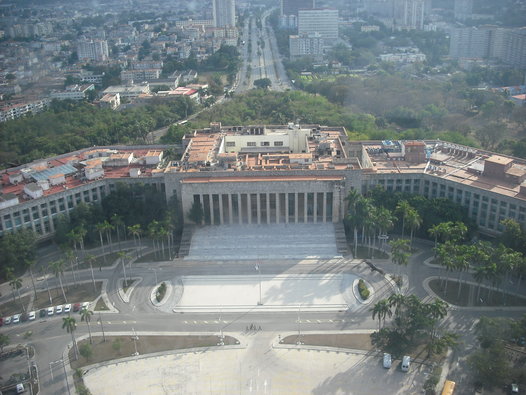
These days of rest, when I have not even had the nerve to open my machine and write, have instead been used to think about the Cuban reality, present, future and my own assumptions. Friends and enemies have branded me as inflexible on more than one occasion, or at least as excessively caustic. And they’re right. Not in terms of my usual bitterness about the government: I reiterate every invective and criticism I have dedicated to the autocracy, and multiply my bitterness towards it exponentially. I do not like it, do not approve of it at all, and will fight against it in my surly style as long as I am alive; I have a deep contempt for this and other dictatorships, and I refuse to serve or obey the regime.
But I’ve also been a bit unfair in my judgmental ratings towards my countrymen, especially when I attack what I consider to be the people’s excessive passivity and docility. Permanent helplessness has a dulling effect on the senses that prevents any clearly formulated proposal. In conversations with some friends that I’ve been nursing these days, I have been pleased to see that people are neither so weak nor so blind; they just have not found the way. Many are not permissive, but fearful. The characteristics of dictatorships are magnified in the people’s imagination; they look larger and more powerful than they really are. Now that image is beginning to crack.
One example is a friend of mine, who, without my suspecting it, is a regular reader of blogs on the Voces Cubanas platform. I did not even realize that, for years, she has known what I do, and is a regular fan who urges her son, — a twenty-something young man — to put everything in digital form that is published in the independent web, including sites of Estado de SATS and recordings of Razones Ciudadanas, among others. For my part, I had not spoken to her about my political views or of my dissident activities, though my opinions are well known and are even shared among all my friends. I do not like to scare people, but the opposite effect was evident in her: “since I’ve read your posts, since I found out all about and what you do, I’m less afraid. Each time I’m more convinced that the only way to fight this government is to stop playing its game. I want my children to know something besides this, a Cuba different from ours”.
So, I made a mistake too. I have underestimated the power of freely expressed opinions, I have underrated the scope –- limited, yet inexorable — of the independent press and the individual will of the disobedient, and I have overestimated the fear of Cubans. This friend is a member of the Communist Party, one additional faker, but she has also been, for a long time, a silent activist who has taken to her workplace, her friends and family nucleus, recorded on disks and flash drives, the whole spectrum of opinions currently stirring in Cuba, especially anti-government views.
Additionally, I have recently become convinced of the power of believing in our own strength. We, the disobedient, are not an “underground” phenomenon. We walk with our heads held high, and make public our meetings, aspirations and opinions. The government is the one underground, locked away in its palaces, plotting its own conferences and laws. Hidden are the power lords, fearful that people might find out what they are scheming, terrified in the presence of the effects of whatever measure they might propose, disconcerted at the slightest possibility that Cubans might have access to information. It is true that people are afraid, but the masses are generally more ignorant than cowardly. The ruling Cubans are actually the real pack of cowards who hide behind the force that gives them absolute power to suppress and prevail. However, they survive in a permanent state of shock, mistrusting even their own followers. Therefore, I ask Cubans, at least those whom I misjudged, to forgive me. You are in hiding, we are in the open, but, at the end of the day, we are all on the same side.
Translated by Norma Whiting
February 10 2012
